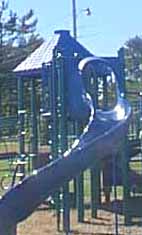1 - 2 - 3 - 4 - 5 - 6 - 7 - 8 - 9 - 10These lessons may not be used for professional development
|
 |
A powerful strategy for culling your original findings is the use of the logical operator "NOT" - which may be "AND NOT" in some search engines.
With some search engines, you may also use a + or a - sign. A plus sign (+) in front of a word means that word must be in pages for them to be a match. A minus sign (-) in front of a word means that any page that has that word is excluded from the list of matches. |
As you browse your first 100 hits, look for patterns and groupings of irrelevant pages. In order to exclude all such irrelevant pages from your collection, add AND NOT with a series of key words contained within parentheses and divided by OR).
If you search for Snake River do you really want all the rafting and adventure sites as well as the motels, hotels, restaurants and other tourist attractions? If not, try the following search . . .
"Snake River" AND NOT (motels OR hotels OR restaurants OR rafting OR adventure OR tourist)
| Workshop Activity:
Try this strategy in Google's Advanced Search with one of your biggest and broadest concepts.
|
![]()
9. Be playful
 |
Power Searching is often more successful when you listen to your intuition and take chances. If you enjoy word play, you will have good luck with the trial-and-error searching process which leads to good results. Listen to your hunches. Be a Sherlock Holmes. Don't be so analytical and logical that you cannot make intuitive leaps. Digital Logic is the attempt to find order in an erratic, chaotic and disorganized information landscape. |
Trust your intuition
Intuition might well complain, "I don't get no respect." This imaginative and playful, associative aspect of intellectual functioning is usually ignored and neglected by the serious scholars, psychologists and researchers. It is viewed as "soft" and unreliable. Our culture frowns on decision-making which relies upon intuition. "Shooting from the hip!" is the allegation.
| Workshop Activity:
See what happens when you take some imaginative Leaps Get lost
One of my favorite passages in the Tao of Pooh is the scene where the group is lost in the woods. When they are exhausted from trying out various direct strategies to find their way home, Pooh triumphantly goes in the opposite direction that makes any sense and ends up just where they want to go. Sometimes we are so intently focused on where we have been going that we cannot see new paths and new possibilities. Until we let go of that intensity and wander about for a while, we are cut off from surprise and wonder and discovery. Try this foolishness out with your research topic . . .
|
10. Use only the best
Pick the best search engine. Learn it, Bookmark it.
![]() Stay with that search engine until someone invents a faster and better information trap (which may not take long).
Stay with that search engine until someone invents a faster and better information trap (which may not take long).
Do not rely upon the "search" buttons built into Netscape or Explorer. These lists create advertising revenue for the software companies and the placement of search engines is a function of revenue rather than value.
How do you pick a good one? Two basic strategies:
- Read independent reviews such as these, valuable for the way they look at search engines as well as the actual ratings:
- Conduct your own evaluation based on criteria such as those offered below.
| Speed | How quickly do pages open and how swiftly do results of searches appear? Some search engines are graphically (advertising) bloated. |
|
Boolean Capabilities
|
Learning how to use logical operators such as AND, OR and NOT greatly enhances your searching. If the search engine doesn't support Boolean searching, don't waste your time. Fuzzy Logic usually produces fuzzy search results. |
| Power Sorting & Searching Features | The best search engines allow you to sort and sift findings by dates, type of page, type of domain (com vs. edu), etc. |
| Interface Design | Good search engines keep the search box front and center where you can enter words without scrolling about. How well are the items and choices laid out on the page? Can you find what you need when and where you need it? Do ads get in the way of your searching? |
| Browsing Capabilities | Can you look at more than 10 "hits" at a time? It is very helpful to quickly scan the first 100 hits. Is the description or annotation of each item sufficient to provide a basis for making a wise choice? Can you determine relevancy? |
| Breadth & Depth of Database | Some search engines and their spiders do a better job of collecting from the world's vast array of Web sites. Is larger better? |
| Digital Logic | Many search engines employ artificial intelligence and digital logic to determine relevancy, proximity and other issues which might help you find the best information. Do they explain the rules of their system or are they hidden? When Web sites and pages appear in the top 20, do they actually belong there? |
| Reasonable Advertising | Some search engines accept advertising which might offend. Do you care? If so, which seem OK to you? |
| Useful Results | The bottom line or essential question is "How useful are the results?" Do you find reliable and relevant information swiftly? |
No matter which search engine you select, do not settle for the "simple search" version of any. You are sacrificing power and accuracy for ease of use. It's a bit like training wheels on a bike. Go for the Power Search or the Advanced Search and encourage your students to do the same. They offer features which will vastly improve your results when combined with the suggestion in this article.
Workshop Activity:
Thank you for joining me in this workshop. Please remember that "hits are not truth" and "the question is the answer." May your future searches prove illuminating and gratifying. |
Credits: Icons are from Jay Boersma.
Other drawings, photographs and graphics are by Jamie McKenzie.© 2000-2006, Jamie McKenzie, all rights reserved.
Copyright Policy: These pages may not be downloaded, reproduced or redistributed in any manner, whether by hardcopy, print, electronic means or any other means.